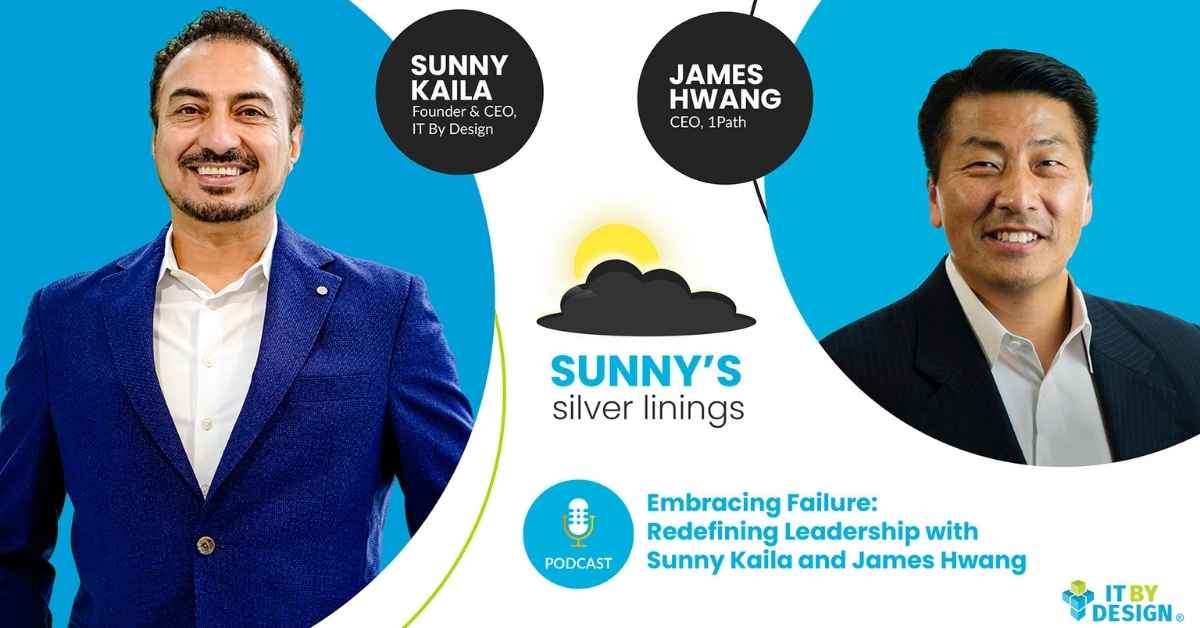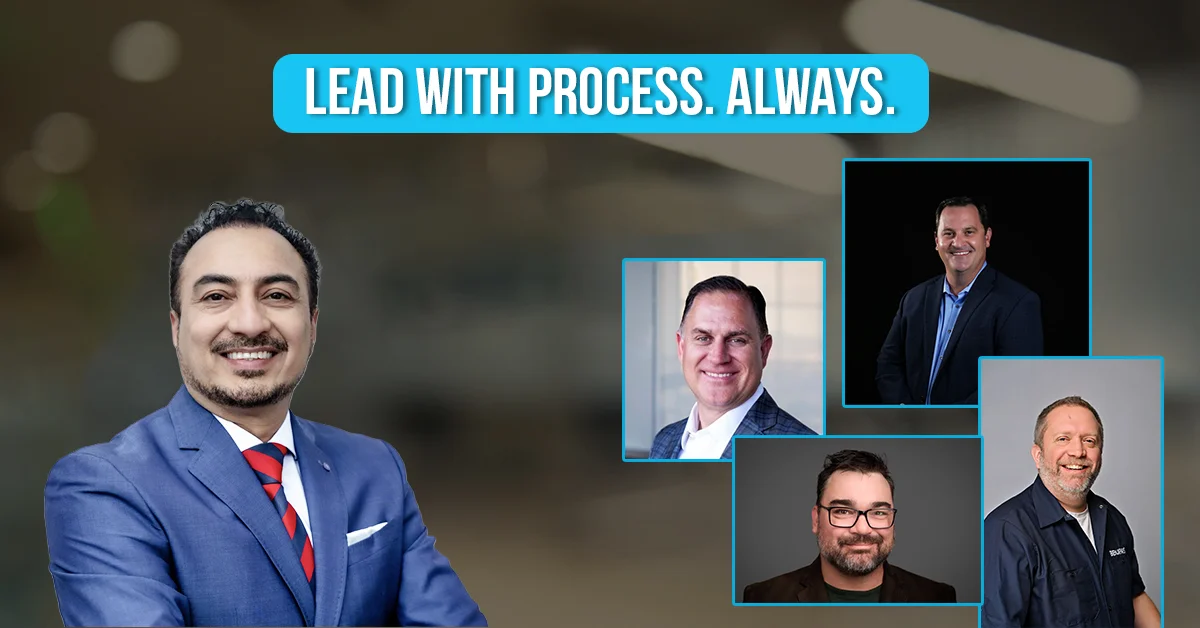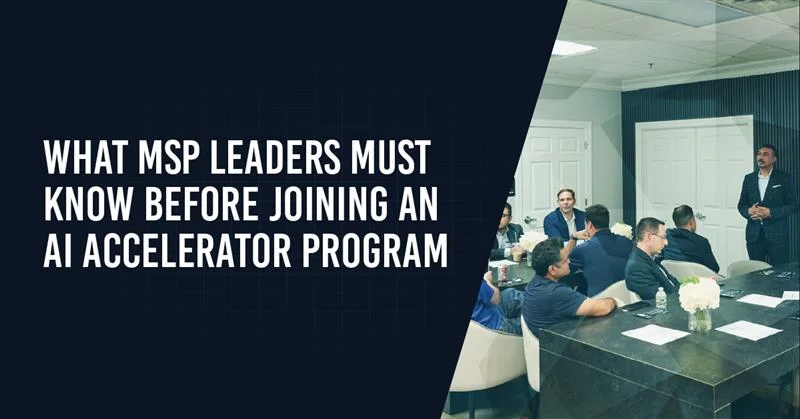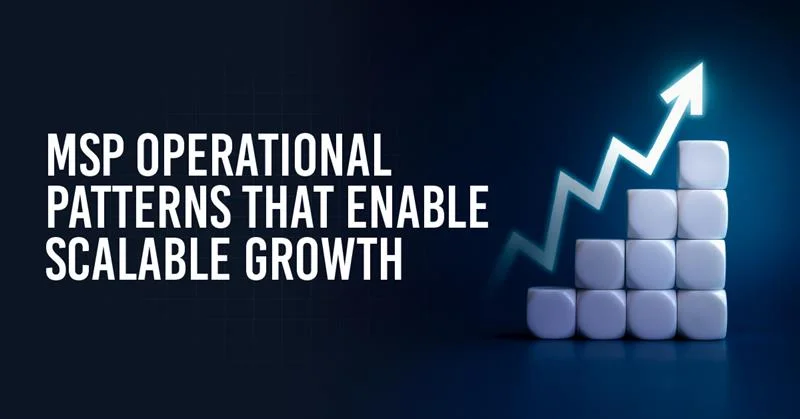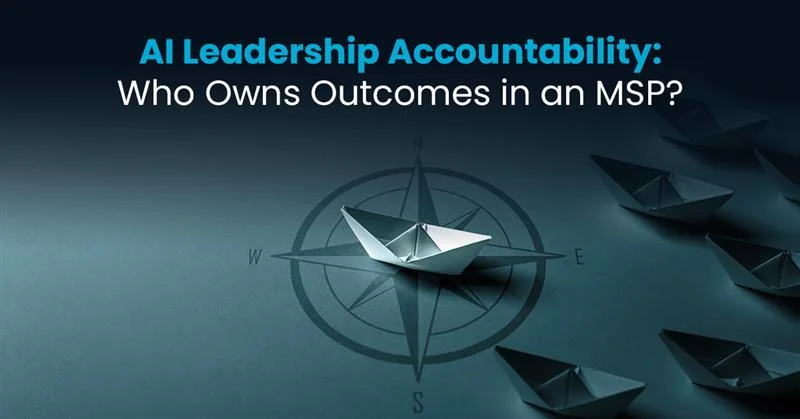In a recent episode of the leadership podcast, Sunny Kaila, CEO of IT By Design, welcomed James Hwang, author of Dare to Fail. They discussed how redefining failure can become a powerful catalyst for personal and professional growth, reshaping leadership dynamics in today’s fast-paced business environment.
Redefining Failure: Turning Setbacks into Opportunities for Growth
James opened the discussion by emphasizing that failure is not a dead end but a crucial component in the journey of growth. He asserted, “We are never going to be perfect, so we must focus on improving.” This mindset shift encourages leaders to view setbacks as valuable lessons rather than points of defeat. In a world obsessed with social media validation, James aptly noted, “If you don’t get the likes, use that as fuel.”
The Actionable Leadership Framework
Drawing inspiration from John Maxwell’s five levels of influence, James introduced his Actionable Leadership Framework, which illustrates how leaders can transition from positional authority to mentorship:
- Positional Influence: Leadership often begins with a title, but the real impact comes from building relationships. James states, “The position gives you the invitation to be relational.” Connecting with team members fosters open communication and collaboration.
- Building Relationships: Trust is forged through meaningful interactions. Engaging with team members personally enhances cohesion and creates a safe environment for experimentation.
- Embracing Pragmatism: James shared a humorous anecdote about an engineer who misused ChatGPT, leading to a production hiccup. Instead of placing blame, the team turned it into a bonding experience, proving that laughter and shared experiences strengthen trust.
- Mentorship: Effective leaders evolve into mentors, guiding others through their journeys. By sharing lessons learned from failures, leaders help their teams navigate challenges, reminding them that “this is what you could do, and this is what you could still fail at—and that’s okay.”
Fostering an Entrepreneurial Culture
Both Sunny and James agreed that cultivating a culture where failure is embraced rather than feared is essential for innovation. Encouraging team members to take calculated risks empowers them to pursue bold ideas and take ownership of their growth journeys.
Conclusion: The Power of Embracing Failure
As the conversation wrapped up, it was clear that embracing failure is essential for growth, both personally and professionally. By viewing failure as feedback, fostering meaningful relationships, and cultivating an environment of trust, leaders can inspire their teams to reach new heights.
As James wisely concludes, “Enjoy the ride, dare to fail again, and if you do, you know you’re improving.” Let’s encourage our teams to take risks, innovate, and redefine what success looks like in this ever-evolving landscape. Embrace failure, learn from it, and support each other on the journey toward boundless expansion—because there’s no failure, only lessons that guide us to a brighter future.
Subscribe to our YouTube channel for more valuable insights and leadership strategies!

